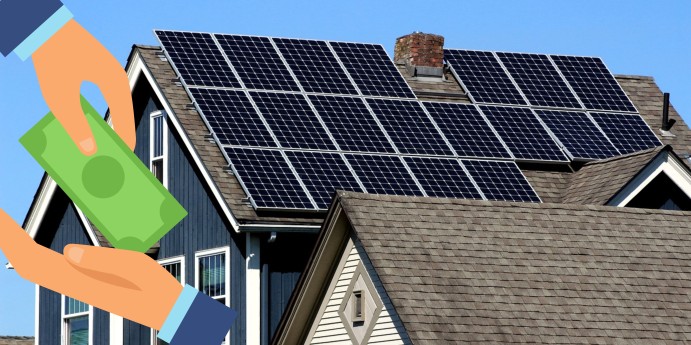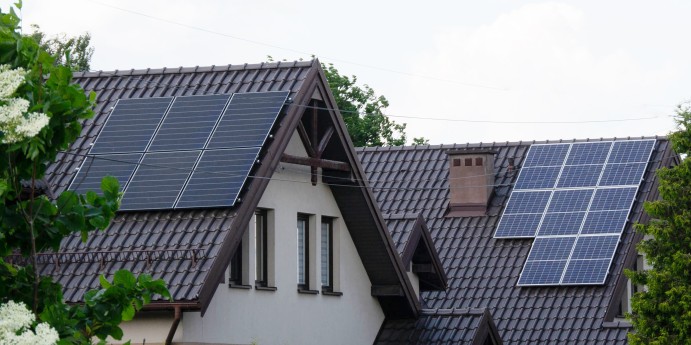Introduction
In times there has been a focus, on saving energy and promoting renewable sources of energy. As part of this movement the government has introduced incentives to encourage homeowners to adopt eco practices. If you own a home in Connecticut you’re in for a treat! The state offers programs designed to help you cut costs while making conscious upgrades. Lets delve into the details of these incentives.
What exactly are Smart E Loans?
Smart E Loans serve as a financing choice for homeowners seeking to enhance their homes energy efficiency. These loans:
- Provide support for home upgrades such as solar panel installations.
- Feature low interest rates that make substantial improvements more financially viable.
- It comes with flexible terms tailored to different financial situations.
In Connecticut, the Smart-E Loan program, managed by the Connecticut Green Bank, offers financing options for home energy enhancements, including panel installations. Here are the essential particulars:
- Loan Amount: You can borrow up to $50,000.
- Loan Terms: Choose from 5, 7, 10, 12, 15, or 20 years.
- Interest Rates: The annual percentage rate (APR) ranges from 5.99% to 7.49%.
Eligibility Criteria
To be eligible, for a Smart E Loan it is generally necessary to be a homeowner with a credit score. The specific criteria may vary,. It’s advisable to consult the loan providers for details.
To qualify for a Smart-E Loan, you generally need to:
- Be a homeowner.
- Maintain a credit score.
- Fulfill specific conditions established by the loan providers.
- The property should be owner occupied and consist of 1–4 units.
- Lender decisions take into account factors like credit score and debt to income ratio.
Benefits of Smart-E Loans
One advantage of Smart E Loans is their offering of low interest rates and flexible terms. This enables homeowners to afford upgrades that can result in long term savings.
Smart-E Loans provides several benefits:
- Low-interest rates.
- Flexible repayment options.
- The potential for long-term savings on energy bills.
- Improvements Covered: The loan can be used for over 60 energy-related improvements, including solar panels, insulation, heat pumps, and more.
Remember, you can also use up to 25% of the loan for non-energy-related measures or healthy home improvements. If you’re considering a project it’s worth looking into a Home Energy Solutions assessment to pinpoint areas that can be enhanced. Any rebates that may be available.
Property Tax Exemption for Solar Systems
Explanation of the Property Tax Exemption
Connecticut provides a tax break specifically for solar installations. This means that if you set up solar panels on your property you won’t face an increase in property taxes because of the added value from the system.
How to Apply for the Exemption
Applying for this tax break is a process. Usually all it takes is submitting an application to your tax assessors office along with evidence of your setup.
Financial Advantages for Homeowners
The property tax exemption can result in substantial savings over time. By reducing your tax liability, this incentive makes solar energy even more affordable.
Sales Tax Exemption on Solar Panels
Overview of the Sales Tax Exemption
When you buy panels in Connecticut you are exempt, from paying sales tax on them. This exemption can reduce the cost of investing in energy.
Eligible Solar Equipment
The exemption, from sales tax applies to a range of equipment such as panels, inverters and mounting hardware. Make sure to verify which items are eligible before making a purchase.
How to Claim the Exemption
To claim the sales tax exemption, you usually need to provide proof of purchase and installation to your local tax authority. This process can vary slightly, so it’s advisable to consult with your solar provider.
Residential Renewable Energy Solutions (RRES) Program
Introduction to the RRES Program
The Residential Renewable Energy Solutions (RRES) Program is designed to compensate homeowners for the electricity their solar systems generate. Essentially, it allows you to earn money for the power you produce and supply to the local grid.
How the Compensation System Works
Under the RRES Program, you receive payments based on the amount of electricity your solar panels generate. These payments can help offset your energy costs and shorten the payback period for your solar investment.
Steps to Enroll in the Program
To enroll in the RRES Program, you’ll need to complete an application process that includes providing details about your solar system and its output. Once approved, you’ll start receiving compensation for the electricity you generate.
Energy-Efficient Home Improvements
Types of Energy-Efficient Improvements Covered by Incentives
In addition to solar panels, Connecticut offers incentives for a range of energy-efficient home improvements. These can include upgrading your insulation, installing energy-efficient windows, and replacing old heating and cooling systems with more efficient models.
Long-Term Savings from Energy-Efficient Upgrades
Making energy-efficient improvements to your home can result in significant long-term savings. Lower energy bills and potential increases in property value make these upgrades a wise investment.
Environmental Impact of Renewable Energy Incentives
Reduction in Carbon Footprint
By taking advantage of renewable energy incentives, you’re not just saving money—you’re also reducing your carbon footprint. This contributes to a healthier environment for everyone.
Contribution to a Sustainable Future
These incentives are part of a broader effort to promote sustainability. By adopting renewable energy, you’re helping to pave the way for a greener future.
Comparing Connecticut Incentives to Other States
How Connecticut Measures Up
When compared to other states, Connecticut offers some of the most comprehensive incentives for renewable energy. The combination of tax exemptions, loan programs, and compensation schemes make it a leader in promoting sustainable practices.
Examples from Other States
While Connecticut’s incentives are robust, it’s also worth noting what other states offer. For instance, states like California and New York have similar programs that provide additional benefits to homeowners who go green.
Challenges and Considerations
Potential Hurdles in Applying for Incentives
Applying for these incentives can sometimes be a complex process. From filling out forms to meeting eligibility criteria, it’s important to be prepared for some paperwork and possibly a waiting period.
Common Misconceptions
There are also common misconceptions about renewable energy incentives. Some people think that these programs are only for new homes or that they require significant upfront investments. In reality, many existing homeowners can qualify, and there are options available for various budget levels.
Solar Energy Made Simple!” Contact SunLife now for a FREE consultation! Our experts will help you transition to solar energy seamlessly. Dial +18334786669 or visit SunLife Solar to book your appointment and brighten your home with sustainable power.
Conclusion
In summary, Connecticut offers a range of incentives to help homeowners adopt renewable energy and make energy-efficient home improvements. From Smart-E Loans to tax exemptions and the RRES Program, there are numerous ways to save money and contribute to a sustainable future. If you’re a homeowner in Connecticut, now is the perfect time to explore these opportunities and make a positive impact on both your finances and the environment.
FAQs
Common Questions About Smart-E Loans
What is the interest rate for Smart-E Loans?
- The interest rate for Smart-E Loans is generally low compared to traditional loans, making it more affordable for homeowners to invest in energy-efficient upgrades. The exact rate can vary depending on the loan provider and the borrower’s creditworthiness.
How long is the repayment period?
- The repayment period for Smart-E Loans is flexible and can range from a few years to up to 15 years. This flexibility allows homeowners to choose a repayment plan that fits their budget and financial situation.
Can I use a Smart-E Loan for other home improvements?
- Yes, Smart-E Loans can be used for a variety of energy-efficient home improvements, not just solar panels. Eligible projects include insulation upgrades, energy-efficient windows, and new heating and cooling systems.
FAQs About Property Tax and Sales Tax Exemptions
Do I need to reapply for the property tax exemption every year?
- No, once you apply and are approved for the property tax exemption for your solar system, you typically do not need to reapply each year. The exemption should continue as long as you own the home and the solar system remains in place.
What documentation is required for the sales tax exemption?
- To claim the sales tax exemption, you will need to provide proof of purchase and installation of the solar equipment. This usually includes receipts, invoices, and any installation contracts or permits.
Are there any caps on the amount of tax exemption I can receive?
- There are generally no caps on the amount of tax exemption you can receive for solar systems. The exemption applies to the full value of the equipment purchased and installed.
Questions About the RRES Program
How often are compensation payments made?
- Compensation payments under the RRES Program are typically made on a monthly or quarterly basis, depending on the agreement with the local utility company. These payments are based on the amount of electricity your solar system generates.
What happens if my solar system generates more electricity than I use?
- If your solar system generates more electricity than you use, the excess power is fed back into the local grid. You can receive compensation or credits for this excess electricity, which can further reduce your energy bills.
Can I participate in the RRES Program if I already receive other incentives?
- Yes, you can participate in the RRES Program even if you receive other incentives, such as tax exemptions or Smart-E Loans. These programs are designed to complement each other and maximize the benefits for homeowners.
Future Outlook
Looking ahead, Connecticut is expected to expand its incentive programs as part of a broader commitment to renewable energy. Stay informed about new opportunities and updates to existing programs to continue benefiting from these initiatives.
 833-478-6669
833-478-6669


